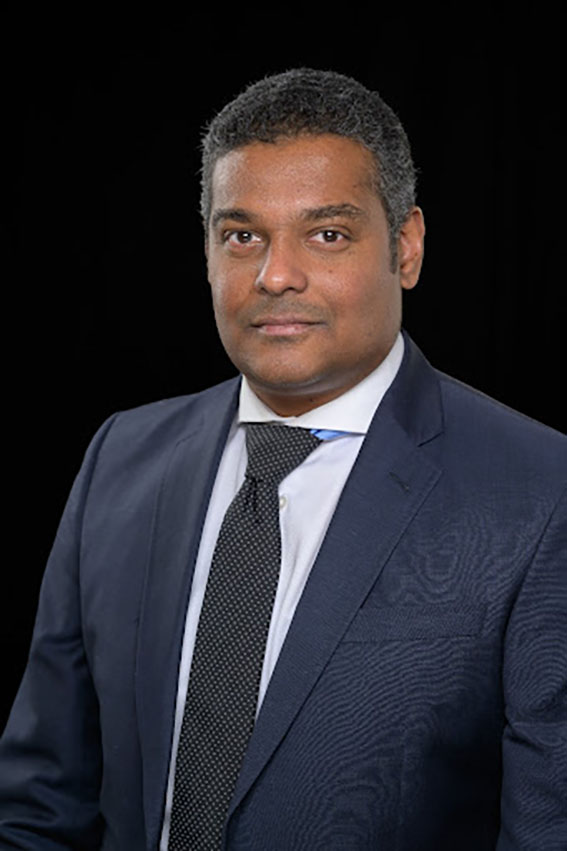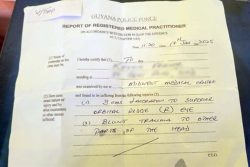The Guyana Bar Association yesterday again threw its weight behind the substantive appointments of acting Chancellor of the Judiciary Yonette Cummings-Edwards and Chief Justice Roxane George-Wiltshire SC, saying it is “untenable” to have had acting appointees for over two decades.
“The situation is untenable and unacceptable, and it is not something we can allow to continue” Bar Association President Kamal Ramkarran said in his address at the opening of Law Week 2025, which was held at the Victoria Courts, Georgetown.
“…There is no reason that we should be here, 20 years later, without a Chancellor or Chief Justice. This is something that should not be accepted by lawyers… the people of Guyana, no one,” he added.
For more than 20 years, the key judicial positions have been filled by acting appointees, with Justices Cummings-Edwards and George serving in their respective roles since 2017.
President Irfaan Ali has steadfastly refused to address the current proposal on the table from Leader of the Opposition Aubrey Norton that justices Cummings-Edwards and George be confirmed in their positions. He has not responded to the May 12, 2022 proposal by Norton, neither has he offered an alternative. Ali has on several occasions said that at the appropriate time the matter will be addressed even though he has been in office now for four years and five months.
Furthermore in April of 2023, rejecting an opposition motion that the President was in breach of the constitution on the confirmation of a Chancellor and a CJ, High Court Judge Damone Younge ruled that President Ali must act with “all convenient speed” in ensuring the appointments of a substantive Chancellor and Chief Justice and therefore must also move with swiftness in engaging the Leader of the Opposition as is mandated by the Constitution. She added that the current state of affairs “is a stain to our country’s otherwise richly woven legal tapestry.” Twenty-one months later, there has been no action by the President.
Detrimental
Ramkarran criticized the ongoing failure to resolve the matter, citing its detrimental impact on the legal system.
The Bar Association President emphasized that both acting appointees are highly qualified and should be confirmed immediately. “I certainly believe that the people who are performing the role of the Chancellor and Chief Justice are the people who should be confirmed for the positions, and it should happen as soon as possible,” he contended.
Ramkarran said that in 2018, the Bar Association had passed a resolution supporting Justices Cummings-Edwards and George-Wiltshire and the body has not changed that position.
“As long ago as 2018, the Bar Association passed a resolution for the confirmation of the people who are sitting at the head table. That was a unanimous resolution passed by the Bar Association, as long ago as 2018 and I know of no reason why that should not be the case today,” he said.
Pointing to the constitutional requirement under Chapter 127 (1), which mandates that the President must obtain the Opposition Leader’s approval for the appointments, he said that the deadlock has gone on for too long.
This provision has led to prolonged deadlock, with successive governments failing to reach consensus.
“The Constitution is very clear. And like in the no-confidence case as the CCJ (Caribbean Court of Justice) said, the words of the Constitution are simple and they need no gloss. It is the same in this situation. Article 127 (1) of the Constitution says that the Chancellor and Chief Justice shall each be appointed by the President after obtaining the agreement of the Leader of the Opposition. There is nothing complicated about that,” he said.
Further, he added, “The first part of it, it is a clear and unambiguous duty which the law says is compellable; the Chancellor and the Chief Justice shall each be appointed by the President. Once there is a vacancy, a duty arises to appoint a Chancellor. The second part of it says, acting, after obtaining the agreement of the Leader of the Opposition. So the Opposition Leader has the power to proffer agreement or not, but there is nothing complicated about that. And like any other power, it must be exercised properly, reasonably and within the confines of the law.”
Ramkarran highlighted the duration of the impasse, stating, “During that time, a child could have been born, completed school, and even earned a degree.”
The last substantive Chancellor was Justice Desiree Bernard, who served until 2005. The issue spans four administrations and remains unresolved due to a persistent lack of political agreement.
The situation has drawn criticism from legal professionals who have described the constitutional formula for appointments as flawed and in need of reform. A comprehensive constitutional review has been proposed to address the issue and other systemic challenges.
Justice Cummings-Edwards and Justice George were both appointed in acting capacities by Granger in 2017. Despite their long tenure and contributions to the judiciary, the absence of permanent appointments continues to raise concerns about the stability and independence of Guyana’s legal system.











